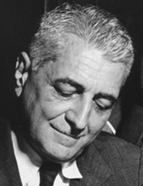

Born in Recife, Pernambuco, on 15 March 1900, Gilberto Freyre was descended from traditional Brazilian Nordeste stock both on his father's side and on his mother's. However, the region was undergoing a decline at that time on account of the end of slavery and the various crises in the sugar economy. His father, Alfredo Freyre, had felt the impact of this decline directly since his plan to study in Coimbra had to be aborted because of the serious blow that the abolition of slavery in 1888 had on the family's finances. As a result, he remained in the country of his birth where he qualified as a lawyer, became a professor and a judge, and was later appointed as a Full Professor of Political Economy at the Recife Law Faculty. He was always interested in and kept himself up to date with European life, being "Frenchified" and an "admirer of England", as Gilberto himself would remember when talking about his origins ("Raízes brasileiras de um recifense sempre itinerante" [Brazilian roots of an ever itinerant Recifense], 1981, p. 129). Such Eurocentric traits as well as his great erudition would leave a profound mark on his son - or rather on his sons since Gilberto's brother, Ulisses, would also have them - complemented by the "less erudite yet not casual talk" of his mother, Francisca de Mello Freyre, "who knew her French and read Alencar and Eça" (idem, p. 128).
According to his reminiscences, from an early age he showed a liking for drawing and painting, in such a way that "he felt no need to learn how to read and write". This learning would come later, at about the age of eight, thanks to the action of Mr Williams, an English teacher who was a friend of his father's, who skilfully encouraged the young boy to become literate (in English of course). At the same time, although he came from a "traditionally Catholic family", he entered the Protestant (Baptist) Gilreath American College, no doubt through his father's professional and personal ties to the institution where he was a teacher as well as the director. He studied in this school until he obtained a bachelor's diploma in Science and Letters in 1917. During his time there, he gave Latin classes (a language he had learnt with his father) in the college, he became involved in literary and social activities, he took private lessons in French and made his debut as a speaker in 1916 in the capital of Paraíba, the neighbouring state to Pernambuco, giving a talk on "Spencer and the problem of education in Brazil", which was later published in the newspaper O Norte.
